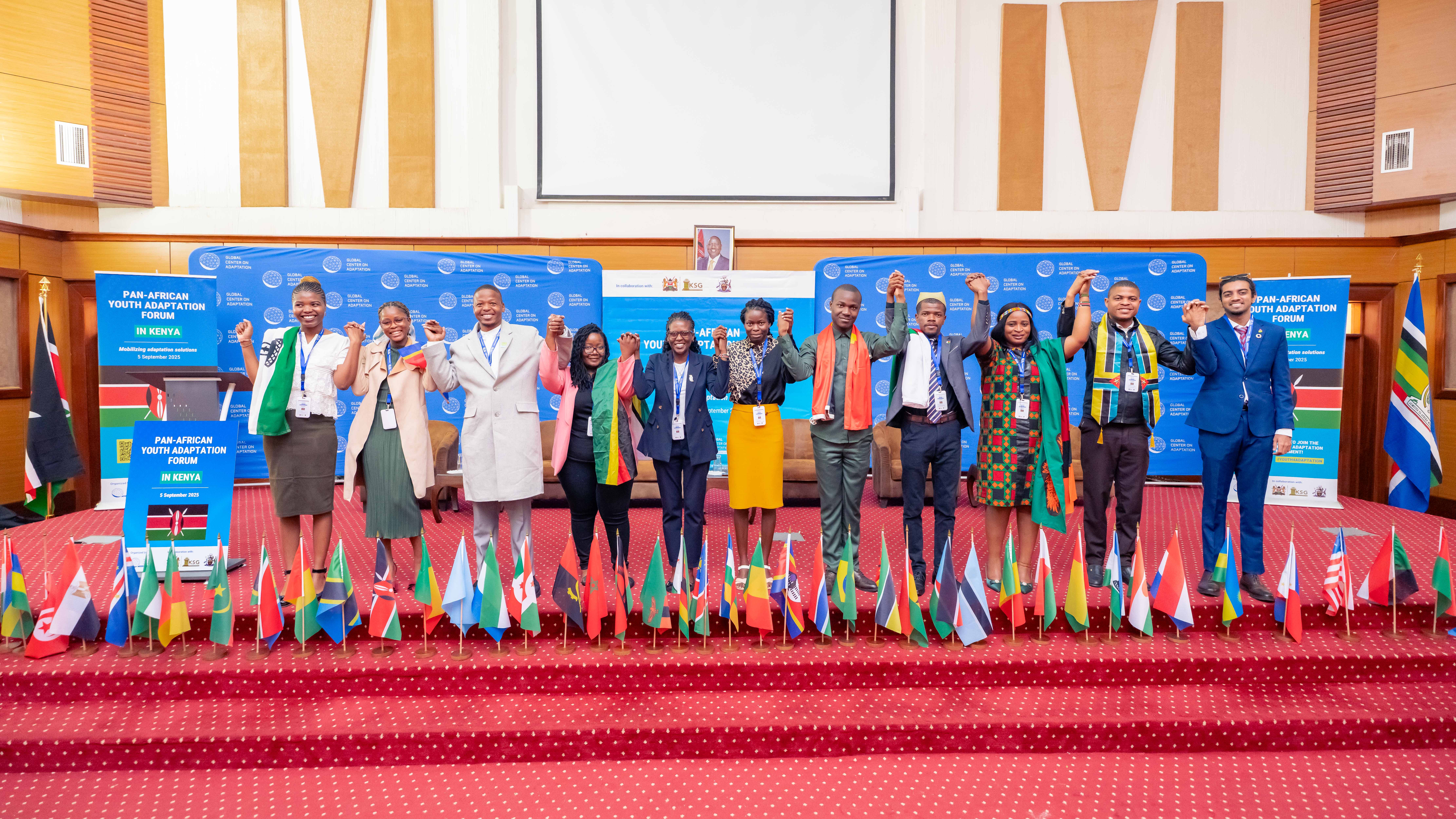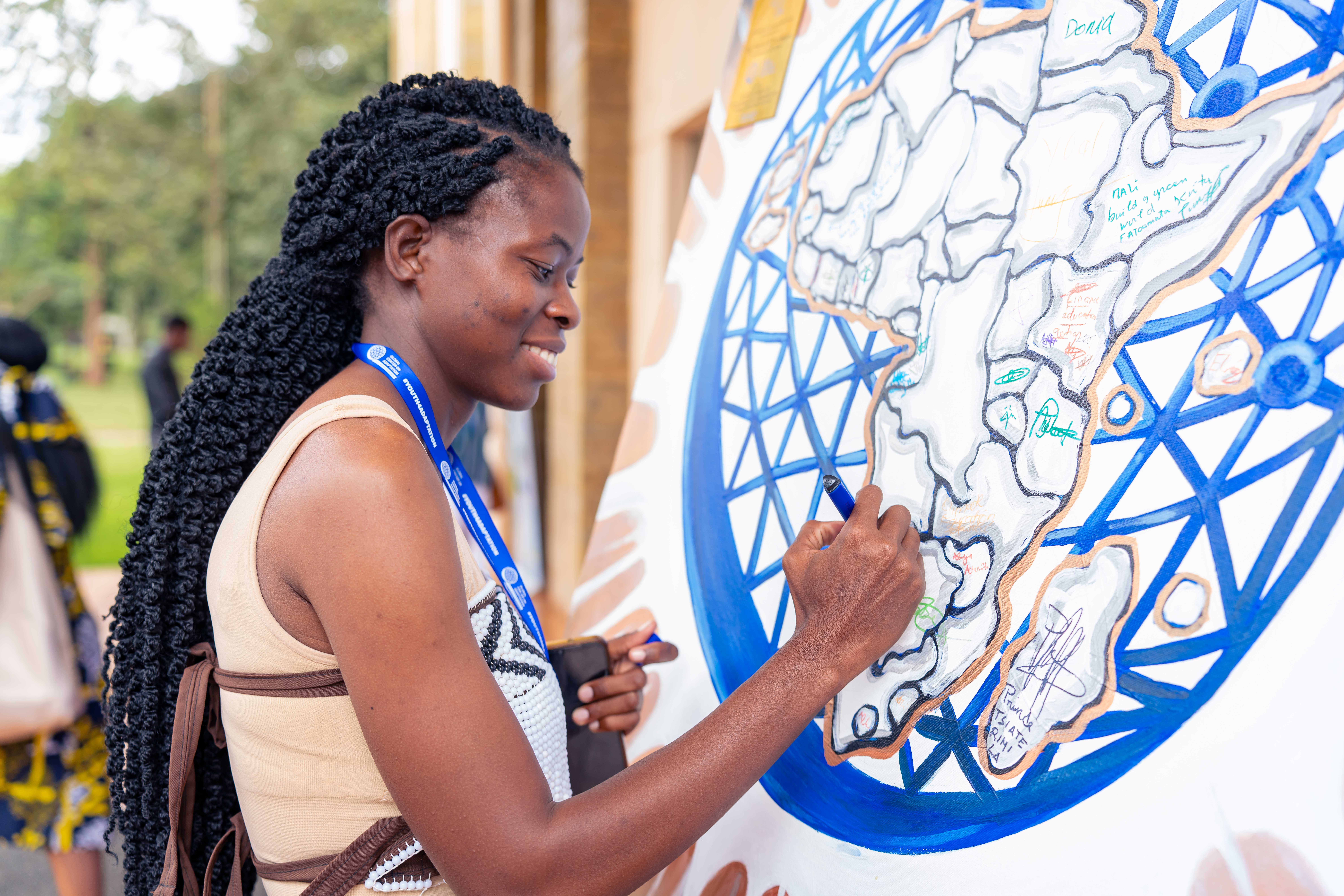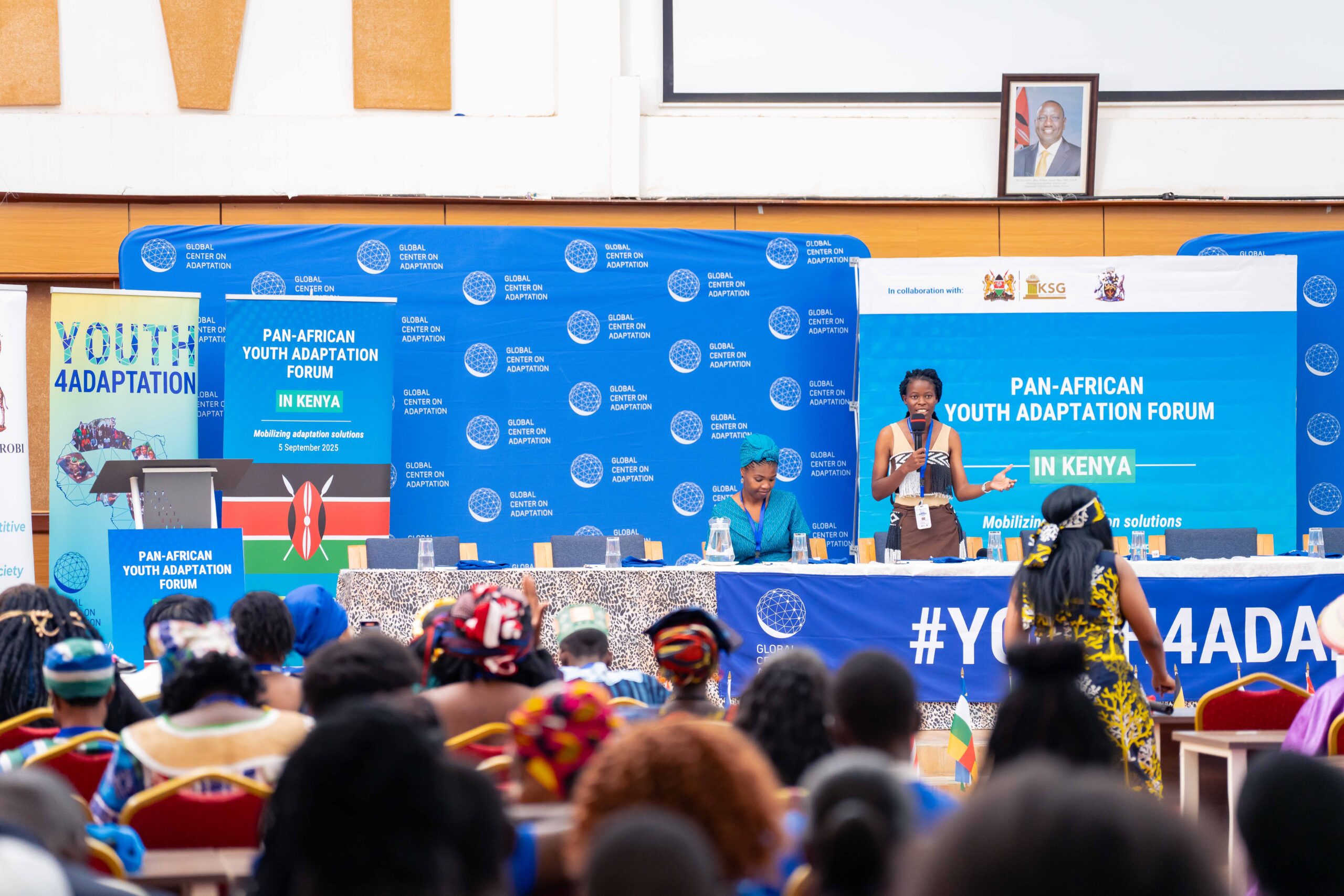
The Youth Academy on Climate Adaptation and Leadership 2025 was hosted in Nairobi, Kenya, from 30 August to 6 September 2025, by the Global Centre on Adaptation (GCA) in partnership with the Kenya School of Government, University of Nairobi, University of Groningen, and Masinde Muliro University of Science and Technology. The academy welcomed over 200 youth leaders from more than 50 African countries, representing organisations, associations, networks, and initiatives at the vanguard of climate action. It was delivered in a training-of-trainers modality, comprising lectures, hands-on sessions, African regional presentations, and interactions with experts and policymakers. The event concluded with the Pan-African Youth Adaptation Forum, where the delegates launched a Youth Communiqué for the urgent scale-up of adaptation finance to be presented at COP30 in Brazil later this year. Inputs
Under this platform, the National Youth Climate Action Network of Namibia (Youth4CAN) was represented as the In-Country Focal Point from Namibia for the African Youth Adaptation Network. Our Executive Secretary, Elizabeth Mughongora, represented Youth4CAN and not just for Youth4CAN but also as a Namibian and African youth. She was accompanied by fellow Namibian Des-Rose Engelbrecht, who serves on the GCA CEO Advisory Panel.
Throughout the academy, young representatives from the private sector, non-governmental organisations, and grassroots organisations participated fully in informing deliberations. Hands-on and intensive sessions were conducted on proposal writing, grant management, implementation and monitoring, entrepreneurship, communication, didactic training, leadership, and conflict transformation. Regional presentations allowed youth from different sub-regions of Africa to bring context-specific issues as well as showcase innovative local solutions..


Experiential learning Visits
As part of the Academy, the participants stepped out of the training rooms into the field to witness adaptation in practice. One of the highlights was the visit to the Kantaria Agriculture Technology and Innovation Centre at the University of Nairobi, where the delegates toured climate-smart agriculture practices and observed how innovation in agriculture can help improve food security in the face of a changing climate.
A special visit was made to the Wangari Maathai Institute, where the legacy of the late Nobel Laureate continues to inspire. There, delegates learned about ongoing environmental restoration, forestry, and community-led conservation initiatives—living examples of how knowledge and grassroots action can build resilience and protect ecosystems.
These field visits gave a practical dimension to the Academy’s lessons, a reminder that adaptation is not theory but practice already being set in communities, yielding models that can be replicated across Africa.
Outcomes
The Academy was not a training but a platform for action. For Youth4CAN, our participation reinforced the necessity of equipping Namibian youth with knowledge and networks to scale up adaptation initiatives on the ground. It also became evident that leadership is a calling—it is not a matter of age, gender, or title, but of being capable of moving forward, taking ownership, and utilising expertise for concrete change.
The Pan-African Youth Communiqué carried one united and powerful message: major emitters must honour their commitments under the Paris Agreement, and adaptation finance must be urgently scaled up
This message was received officially by Prof. Patrick Verkooijen, CEO and President of GCA, and senior dignitaries, Prof. Nura Mohamed (Director General, Kenya School of Government), Mr. Hans Olav Ibekk (Norwegian Ministry of Foreign Affairs), and Dr. Ana Maria Loboguerrero (Director for Adaptive and Equitable Food Systems, Gates Foundation).

Beyond the formal sessions, the academy also forged solidarity across borders. The cultural exchange and graduation celebration celebrated Africa’s diversity while reaffirming the youth’s shared responsibility to advance the resilience agenda. For Youth4CAN, the lesson is clear: the learning here must radiate outward, reaching Namibian communities through training, projects, and advocacy.
The Academy showed that young people in Africa are not waiting for permission to lead—they are already leading. Now what is required is more urgent support, stronger partnerships, and braver, bolder action to keep up with the pace of the climate crisis.






